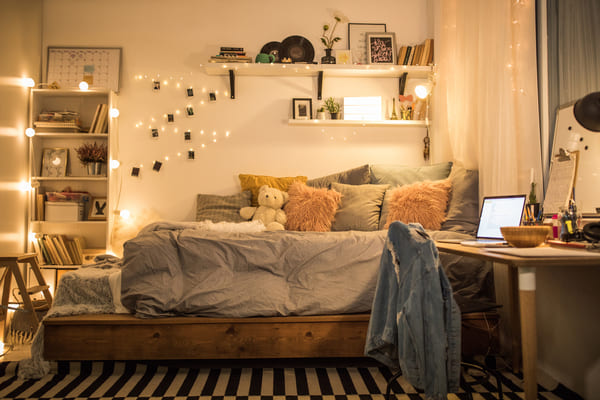
Use our accommodation tool
Search for somewhere to live.
Finding somewhere you'll be happy to live is an important part of uni life.
To help you make the right choice, we’ve put together some info on the different types of accommodation you might want to consider, and their pros and cons.
You can also use our accommodation search tool to explore both uni-owned and private options.
Halls of residence are owned by your uni and they’re mostly reserved for first year students. They’re usually closer to campus and can be cheaper than other types of accommodation.
You'll need to apply for a place in halls of residence through the uni accommodation office, and you can usually do this online. You’ll apply for a few different halls and rate them in your preference order, but bear in mind they are popular, so you may not get your first choice. Check the uni website for details on how and when to apply.

To understand what options are available, the best place to start is the uni website. But here are our key things to look out for.
Remember: You aren’t guaranteed a place in your first choice, so when you’re selecting your options, make sure you’d be happy to live in any of them and scope out what your day-to-day life would look like in each one.

Search for somewhere to live.
Private halls are like normal halls of residence but aren't owned by the uni. They're usually part of a UK-wide chain of purpose-built student accommodation. Sometimes this means you could be living with students who don't go to the same uni as you. They also sometimes have other options like studio flats available, although they’re more expensive.


If you're not interested in going into halls of residence, or you haven’t managed to get a place, you could choose to rent a house or flat, either by yourself or with other students.
This is common for second and third year students, but you can ask your accommodation office or students' union to see if there are other first years looking for private rented accommodation too. This might also suit you if you’re a mature student.

Here are some top tips if you’re looking for shared, rented accommodation.
